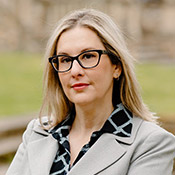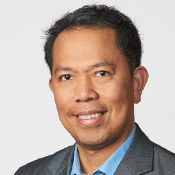ACSI Research Fellow Program
The Research Fellowship program at ACSI offers a unique opportunity for talented researchers to contribute to advancing the field of Christian education while addressing critical global challenges. By fostering collaboration, knowledge exchange, and innovative research, the program aims to make a significant impact on the world stage.
Program Aims:
- Create a vibrant and inclusive international research community.
- Foster collaboration, knowledge exchange, and innovative solutions to address both US and global challenges through research projects in Christian education.
Program Oversight:
- The fellows will collaboratively work with ACSI’s research department and Thought Leadership and the Research Director will oversee the program.
ACSI Fellows Collaborate on Research to Advance Faith-Based Education
ACSI Fellows collaborate with the Thought Leadership team (Research Department) to develop research and Working Papers on important topics in education, spirituality, and culture, focusing on their impact within the realm of Christian education. Their work addresses current trends and challenges, offering valuable insights for advancing faith-based learning.

RiB is a biannual publication by ACSI, aimed at sharing the latest research findings and insights on the Christian school sector. It is available exclusively to ACSI member school and is managed by ACSI Director of Research.

Lynn Swaner Ed.D.
President of Cardus USA – ACSI Senior Research Fellow

Matthew Lee, Ph.D.
Clinical Assistant Professor of Economics at Kennesaw State University - ACSI Senior Research Fellow

Francis Ben, Ph.D.
Associate Professor & Head of Postgraduate Coursework and Research at Tabor College Adelaide Australia – ACSI Global Research Fellow

Alison Heape Johnson
PhD candidate at the University of Arkansas – ACSI Junior Research Fellow
Eligibility:
- Understanding of Christian education.
- Strong academic credentials (e.g., relevant degrees, publications, minimum a Ph.D. candidate in education programs for Junior Fellow and a Ph.D. or Ed.D. for Senior Fellow).
- Demonstrated research excellence.
- Experience in international research collaboration.
- Excellent English communication skills.
- Minimum five years experience of doing research.
Nomination and selection process:
- The selection of the fellows is done through ACSI’s internal nomination.
The Call to Abide
There are many words that we can use to describe our modern culture, but there is one that we can all resonate with: “busy.” We are busy people living in a busy world. The calendar always seems full, and life always seems to be moving at a more rapid pace than the year before.
As an educator, you feel this at an even higher level as spring approaches. There are too many tasks to complete, events to be planned, and meetings to be attended, yet too little time.
Do you feel this too?
Often, our solution to the busyness is to work harder, move faster, and get more done. We are under the illusion that doing more will alleviate the stress of our hurried pace of life, but it never seems to work. The stress level gets higher, and the feeling of restlessness begins to take root. There seems to be no end.
Even in our walk with the Lord and the ministries He has called us to, we find ourselves operating at a pace of life that we are not created for. We begin to neglect the presence of the Lord at the expense of productivity. We begin to feel as if we don’t have time for the Word, for prayer, and for fellowship. We become so distracted with serving (as honorable as the tasks may be) that we neglect the One who has called us to serve. Slowly but surely, we grow tired of ministry and our cup dries up.
This is not the way of Christ, and this is not the life that He offers. Jesus calls us slow down, rest in His presence, and abide in Him.
This call to abide is at the heart of ACSI’s Global Day of Prayer.
In John 15:4-5, Jesus tells his disciples,
“Abide in me, and I in you. As the branch cannot bear fruit by itself, unless it abides in the vine, neither can you, unless you abide in me. I am the vine; you are the branches. Whoever abides in me and I in him, he it is that bears much fruit, for apart from me you can do nothing.”
The word abide comes from the Greek word meno, which means to remain in the same place or position over a period of time. It means to reside, stay, live, lodge, tarry, or dwell.
Like many of the commands of Jesus, the command to abide is distinctly counter-cultural. In a culture that praises productivity and pressures us to find meaning in doing more, Jesus’ command to abide is a call to remain, to tarry a little longer, and to rest in His presence.
There are three important truths that we can glean from Jesus’ words in John 15.
First, we abide because it is God’s good purpose and design for our lives. “I am the vine; you are the branches.” Our identity is found in our connection to Jesus. In other words, we are not defined by what we do, but by who we are connected to.
Second, we abide because it is the path to a life and ministry of fruitfulness. Jesus does not command His disciples to produce fruit in John 15. He commands them to abide. Jesus knows that connection to Him will result in an overflow of fruit and good works.
Third, we abide because it is the way of Jesus. Jesus always acted from a state of surrendered dependence upon the Father. He would often withdraw to desolate places to pray before intentional times of ministry. If the Son of God abided in the Father, then wisdom would call us to do the same.
Warren Wiersbe writes, “To abide in Christ means to depend completely on Him for all that we need to live for Him and serve Him. It means to keep in fellowship with Christ so that His life can work in us and through us to produce fruit. It is not by means of imitation that we abide in Christ and walk as He walked. No, it is through incarnation: through His Spirit, Christ lives in me.”
Simply put, without the life of Jesus working in us and through us, we cannot do the work He has called us to.
So, as we unite all over the world to pray for and with one another, may we be reminded that apart from Jesus, we can do nothing. The work of Kingdom Education is too great a task to be accomplished apart from Him.
And more importantly, may we see this day of prayer not only as an opportunity to pray, but also as an opportunity to slow down, rest, and worship in the presence of our good and loving Savior, Christ the Lord!
We hope that the theme “Abide” encourages you to sit at His feet, learn from His Word, meet with Him in prayer, fellowship with His people, and relax in His presence. Jesus will meet us in these ordinary means of grace, resulting in an overflow of fruitfulness to the glory of God and for the blessing of others.




Leave a comment